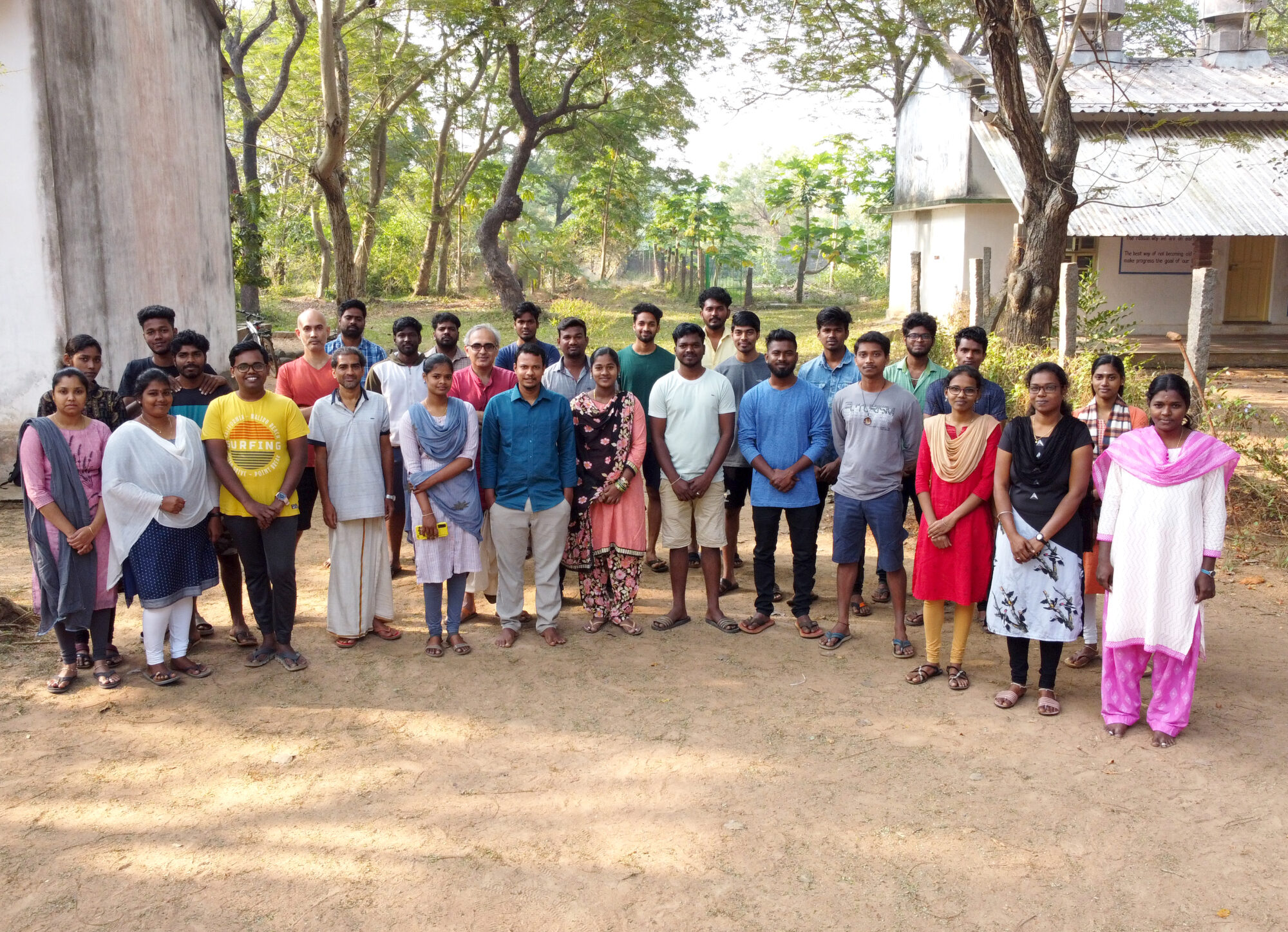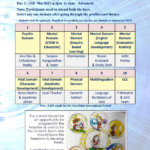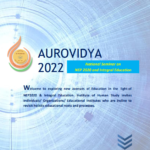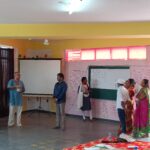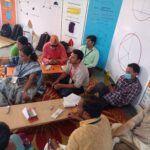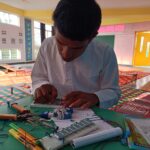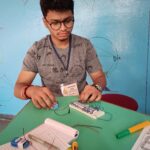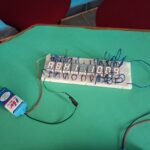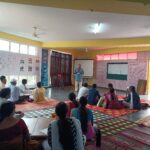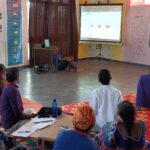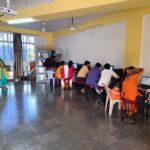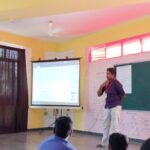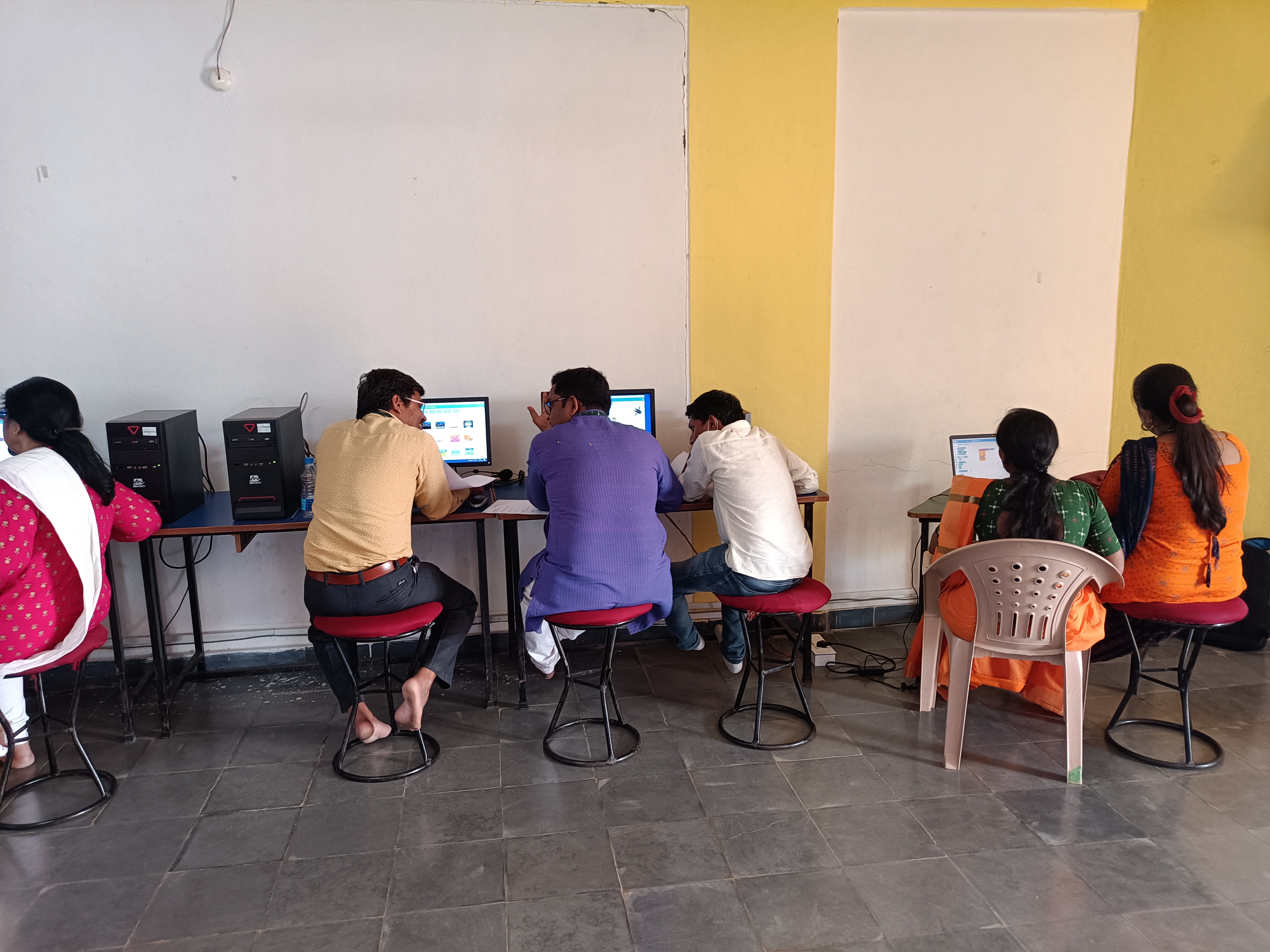The schools of Auroville and C3SL work on the philosophy of Sri Aurobindo and The Mother of Integral Education. The philosophy of Sri Aurobindo of the integral development of the child (Aurobindo, 1921, pp.1-8) emphasizes self-knowledge and assumes an important relevance in the recent National Education Policy that is based on his work and states that “knowledge is a deep-seated treasure and education helps in its manifestation as the perfection which is already within an individual.” The philosophy creates guiding principles for teachers and in how we engage with children. The three principles of true education by Sri Aurobindo are:
- Nothing can be taught
- The mind needs to be consulted in its growth
- From near to far
The first principle can be linked to the constructivist theory that knowledge cannot be forced into a child’s mind. The role of a teacher is not to mould or hammer a child into the form desired by the adult. The teacher is a guide, or mentor that supports and encourages a child in the process of learning, enabling them to evolve towards perfection. Our engagement with children follows this principle.
The second principle indicates that the child needs to be consulted in his/her learning. This is done at C3SL as the elder children plan what they want to work on and how they want to organize themselves to do it with the broad ground rules of respecting themselves, others, and the materials. With younger children, this aspect was put into practice in the co-creation of challenges along with them.
The third principle is to work from near to far. To work from what is tangible and accessible to children to what is abstract to them. The children work on projects they care about in the environment they engage with and as they grow older move towards more abstract ideas. This paper will present projects both in the physical world and also in the abstract world.
Such an education addresses the purpose of education beyond fitting in and standing out and knowing oneself and one’s purpose in the world. The environment most suited for Integral Education is one where the child progressively learns about himself/herself and can make choices on their own. This environment is broadly referred to as ‘Free Progress’, where children are provided the freedom to make progress towards learning and understanding themselves deeply. At a practical level, this appears as freedom with responsibility in learning. While the responsibility of learning rests with the child, it is the teacher/facilitator who has a big role in creating a meaningful learning environment and this role is far larger than that of a traditional didactic teacher.
Values form the essential basis of actions and are required for the improvement of the social aspects of learning and for forming a learning community. However, ‘teaching values’ has its limitations, and incorporating them in society and in our work can be challenging. Self-awareness and personal transformation are necessary, but not sufficient for social transformation. We also work on RTL (Radical Transformational Leadership) with children by looking at system thinking and noticing patterns and how we can align our actions, and thoughts to the values we care about for a Conscious Full Spectrum Response capacity-building framework. This also provides us with a more holistic view of how we would like to access our work beyond academic achievement.
In this workshop, we will look first at the exploration of inner capacities through leadership tools and how it has the potential for transforming reactions of fear into conscious responses based on the highest possibility in both teachers and students. We will then engage with some technical aspects of developing the mental being through technology while holding these values and interacting in the kind of environment we would like to create for children with an introduction to some of the hands-on work we do.
‘The progress of the child guided by the soul and not subjected to habits, conventions, and preconceived ideas is illustrative of a system of free progress’ (The Mother, 1956). By the end of the workshop, we hold that we would have conveyed how at C3SL we develop the values of responsibility, equality, and the courage to create in children and you can take back some reflections on how you will do this with the children.
We presented in the mental domain.
Plan for the workshop:
Day 1:
Introduction to STEM land
Stewardship – Knowing who I am?
Stand(Universal value) and Fear (socialized ):
Knowing who I am is a possibility
Seven segment display
Day 2:
Deep listening and conscious full-spectrum response (CFSR)
Programming Scratch projects
